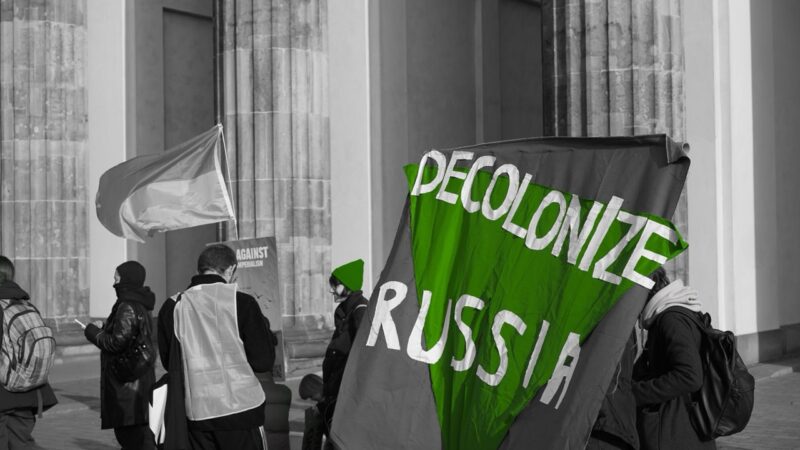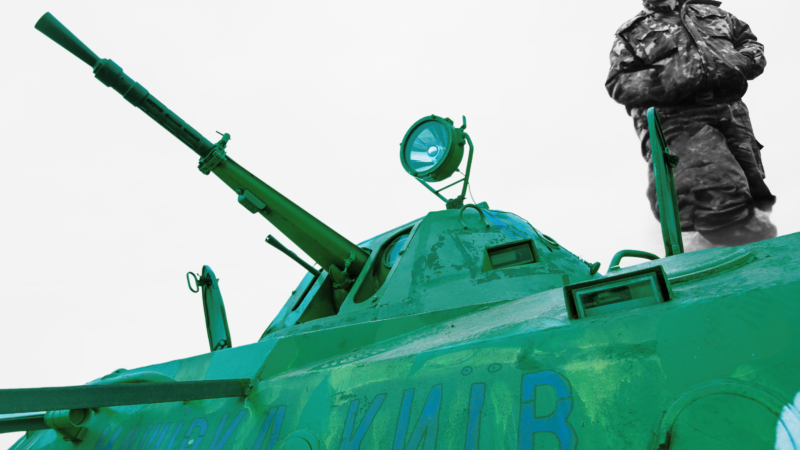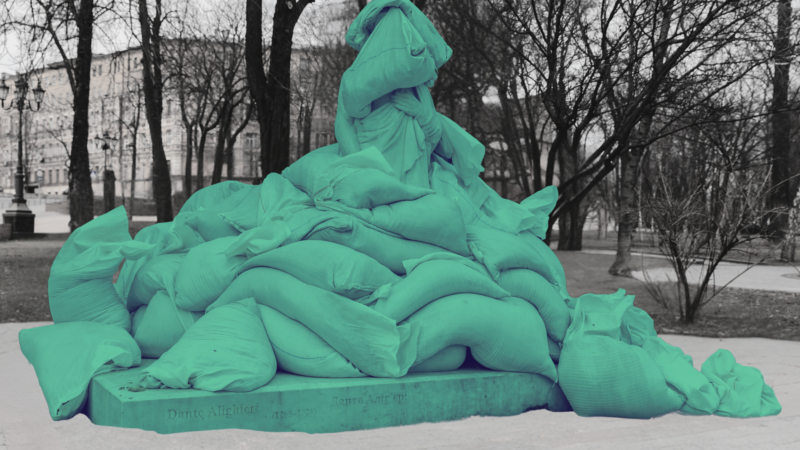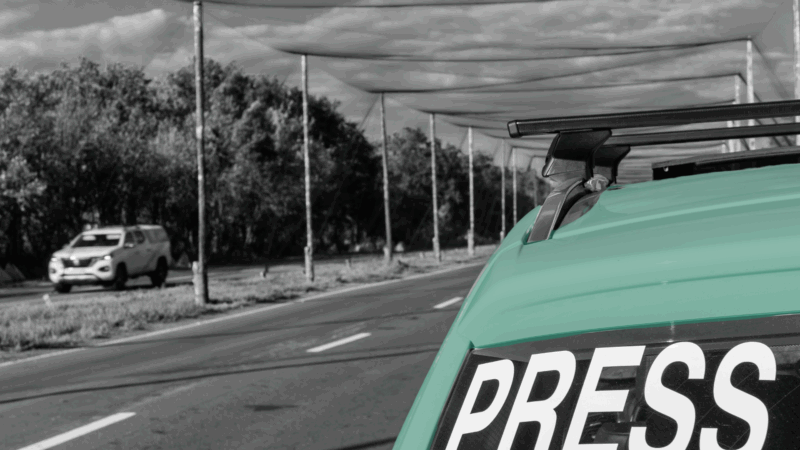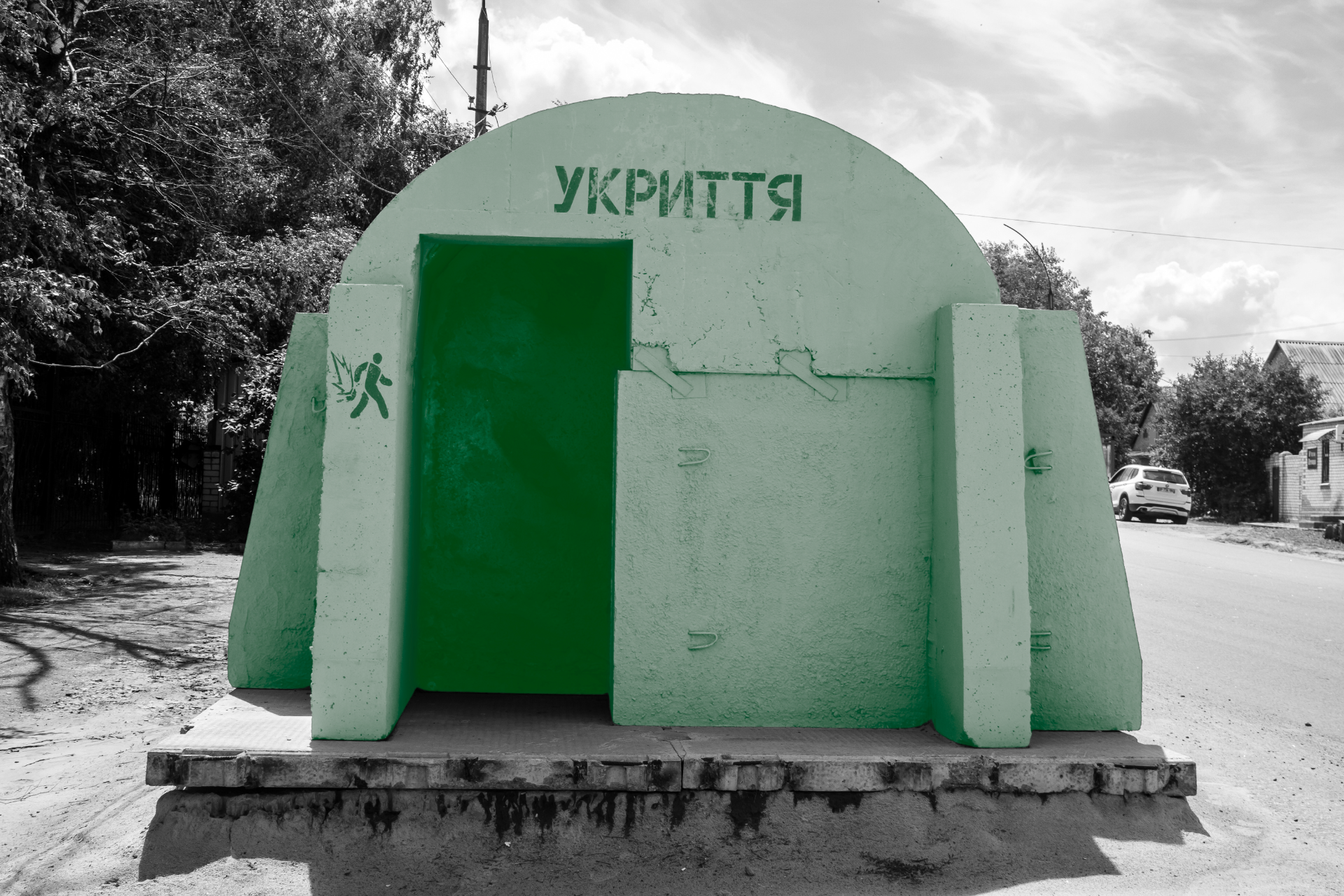Interview with Andreas Umland | The best security guarantee for Ukraine is full NATO membership
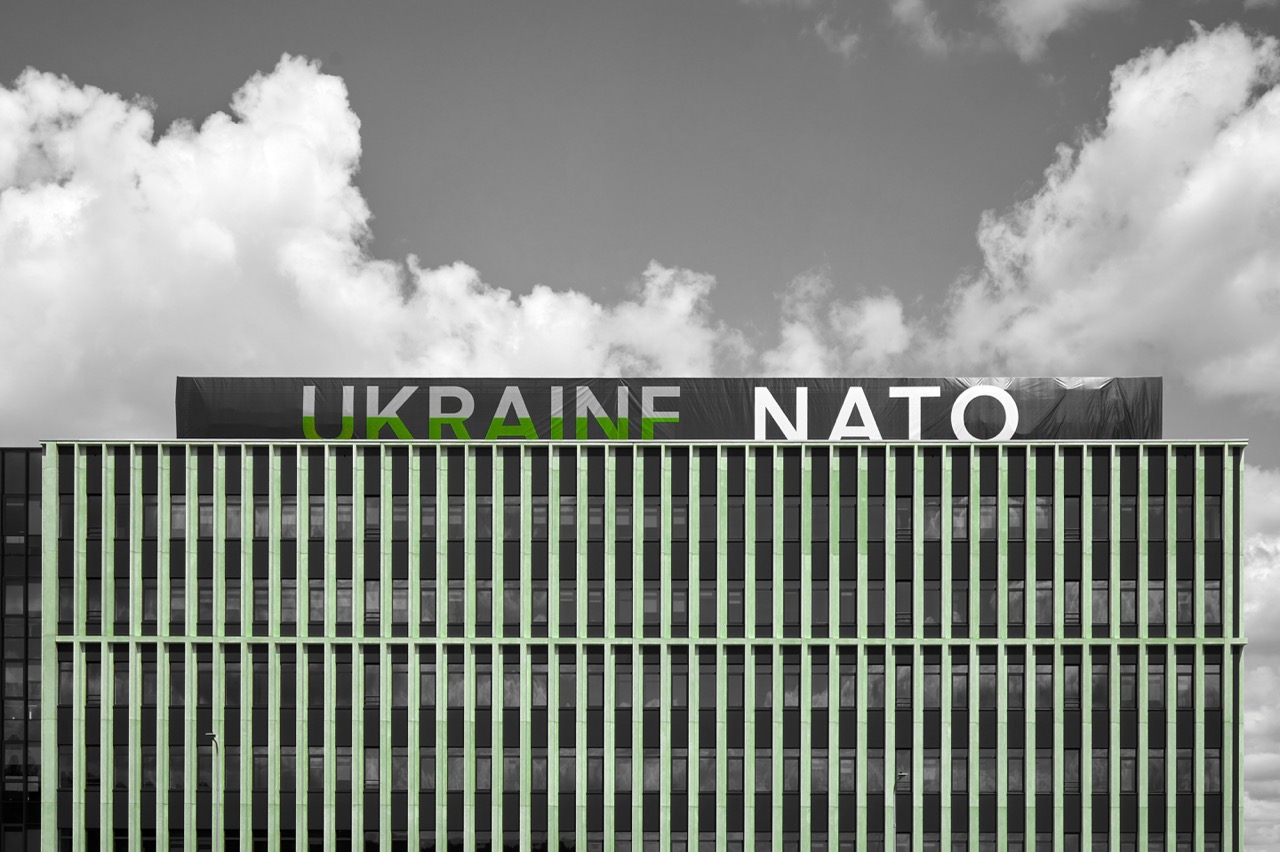
Oleksandr Pankieiev: How do you assess the long-term implications of Russia’s invasion of Ukraine on European security architecture?
Andreas Umland: That very much depends on the outcome of the invasion. If the result allows Russia in some way to harvest the fruits of its aggression, then this will essentially be the end of the European security architecture, and it will also have repercussions beyond Europe for the global order—including, for example, the non-proliferation regime of nuclear weapons or even the whole United Nations system. If, on the other hand, the invasion is reversed and the occupied territories will be liberated, then there will be a greater chance, at least in part, for a just peace. This would provide momentum to European integration and further development of the European security architecture. Among others, a just peace should entail the inclusion of Ukraine into both the European Union and the future security architecture of Europe.
Pankieiev: My next question is connected to the first. How do you view Trump’s brand of populism in the context of the global rise of authoritarianism, and what are its implications for Ukraine?
Umland: For Ukraine, the timing of Russia’s war is particularly unfortunate, as it coincides with the global rise of populism. Of course, the war, having deeper roots in pre-revolutionary Russian pan-nationalism, is not merely a product of current populism. It is in many ways a far more serious threat. The concurrent resurgence especially of far-right populism in several European countries and the United States has been additionally unfavourable for Ukraine. These populist movements tend to be nativist, isolationist, and nationalist. Thus, to put it mildly, they show little concern for Europe’s threatened security architecture or for the crumbling of the international rules-based order.
The UN system, Nuclear Non-Proliferation Treaty, and similar institutions are far removed from the populist agenda; populists neither regard them as important nor do they always support their aims. In fact, they are often actively opposed to such international institutions as the EU, UN, and a wide range of other global and regional organizations. This is particularly unfortunate for Ukraine, which relies on the functioning of these organizations, transborder democratic solidarity, and the rule of international law. For populists, on the other hand, these are either irrelevant or elements of a transnational civil society to be dismantled. As a result, Ukraine has faced serious challenges in conducting its war, as it must contend with adversaries not only from abroad but also working to disrupt Western countries from within. Parties such as the Alternative für Deutschland in Germany, alongside other right-wing and, to some extent, left-wing populist movements, oppose solidarity with Ukraine and undermine the global rules-based order and European security framework.
Pankieiev: In this context, what is the Trump administration’s desired role in the settlement of the war?
Umland: Trump’s position is shifting almost weekly, with contradicting signals being sent all the time. It fluctuates back and forth. The overall impression is that the POTUS lacks a coherent plan. He may want peace because peace is popular, but I don’t believe he has a genuine interest in Ukraine or its future. His primary concern appears to be votes and popular support, which is why he emphasizes the seemingly simple yet illusory idea of peace.
He is attempting to leverage this naïve slogan in various ways, including by assigning blame to Ukraine. He does also employ rhetoric that places some blame on Putin. Trump will be of little help, if not cause destruction. He seems fundamentally disinterested and merely wants vaguely the conflict to end somehow. But without deeper engagement, he cannot make a constructive contribution. To the contrary, his approach may encourage Russia and undermine American support for Ukraine; at least, that is how it looks as of mid-May 2025. In effect, Trump is aligning himself with Putin, with whom he already had an established a relationship during his first presidency.
Pankieiev: How do you see the role of the EU evolving in response to Russian aggression?
Umland: The European Union has undergone a surprising shift over the past months. In particular, the meeting between presidents Trump and Zelensky with Vice-President Vance at the White House sent shockwaves through Europe. Interestingly, this shock has had a somewhat positive effect, sparking a renewed sense of unity across the continent. There is now a heightened fear of Russia, especially in light of the apparent disengagement of the United States from the European security order. This renewed European unity now largely includes Ukraine itself.
Ironically, the Trump administration has, likely unintentionally, triggered a process within Europe of reinterpreting the Russian–Ukrainian war and reassessing the structure of the European security system. This development has worked to Ukraine’s advantage, at least in terms of its relations with European countries. Of course, it has come at the expense of Ukrainian–American relations. In general, Trump is weakening, if not actively undermining, the West as a whole. Nevertheless, within the European context his shocking behaviour has had the unintended consequence of raising awareness about the security threat posed by Russia and highlighting the essential link between Ukrainian security and European security more broadly.
Pankieiev: What is being done currently to improve that security infrastructure? What new initiatives is Europe undertaking at this moment?
Umland: We are witnessing a new emphasis within the European Union on defence policy, which is an only recent development. There is now a designated EU Defence Commissioner, Andrius Kubilius from Lithuania, a highly capable man who was formerly the Prime Minister of Lithuania and a European parliamentarian.
Both at the EU level and within individual member states, there is now a sharper focus on matters of security and defence. New budgets are being approved that reflect this priority. For example, Germany has recently amended its constitution to effectively abandon the so-called “debt brake.” While the debt brake is a sound principle under conditions of peace, it is not appropriate at a time when Europe is experiencing its largest security threat since World War II. Across Scandinavia, Eastern Europe, and several Western European countries, a significant reassessment of defence and security policy is underway, accompanied by increased budget allocations. This may ultimately lead to the emergence of a new European structure tasked with addressing security challenges.
It is worth recalling that the idea of a European Defence Community was first proposed in the early 1950s, originally by France. Ironically, it was France itself that later blocked its implementation. As a result, the European Defence Community never materialized. Today, there may be a second opportunity to create such a framework. This new defence structure need not be identical to the European Union, but it could serve to safeguard European security, especially in the event that the United States fully withdraws from European security affairs.
Pankieiev: You see it as a possibility that the European Union will actually take care of its own security and integrate Ukraine into that security?
Umland: Yes, I believe these developments are part of broader, long-term trends, but they have been accelerated, especially by the behaviour of the Trump administration over the past months. During this period, a series of alarming signals have been sent by Trump to the outside world, particularly to Europe and Ukraine. Chief among them was the above-mentioned scandalous meeting at the White House.
As a result, we now see a new sense of urgency and unity. This is evident even in the images from recent meetings between President Zelensky and leaders like Scholz, Macron, Starmer, and Tusk; the atmosphere appears markedly more cohesive and aligned. There are, of course, exceptions. Countries like Hungary continue to boycott or sabotage deeper European integration on defence and security issues, including Ukraine’s inclusion in these frameworks.
Nonetheless, the overall trend is favourable to Ukraine. The major European powers, with the possible partial exception of Italy, are generally supportive of Ukraine. Moreover, there is a particularly strong alignment with Ukraine among the smaller Nordic and Baltic countries, which, in relative terms, contribute the most to Ukraine’s support. However, due to their size, their assistance is less significant in absolute terms compared to that provided by countries such as Germany, France, the United Kingdom, and the Netherlands.
Pankieiev: My next question concerns the role of European countries in the ongoing peace negotiations. How crucial is their role and participation?
Umland: This is a difficult question, and the situation is constantly evolving. Every week, we have new developments and turns, fresh announcements, and concrete decisions, all of which are changing the landscape. Unfortunately, in many European capitals and also in Washington, the illusion persists that a form of understanding with Russia can be reached without exerting stronger pressure, both military pressure on the battlefield in Ukraine and economic pressure through sanctions. Thus far, the prevailing strategy has been to threaten Russia with harsher sanctions and the prospect of increased military support for Ukraine, in the hope that this would bring Putin to the negotiating table in a serious way. However, this approach has clearly not yielded results.
What we are seeing from Russia is not an outright rejection of negotiations in principle. Instead, what is unfolding is more accurately described as negotiation theatre—a performance of diplomacy devoid of substance. We continue to have a lot of motions, announcements, demands, and so on, but the situation on the battlefield is not changing, and the war goes on. There is a great deal of talk, but no real change at the ground level.
Pankieiev: How long can Russia refuse to talk and prolong the negotiation process? What is the Kremlin’s strategy?
Umland: This is an interesting question because so far, the Russian leadership appears to believe that time is on its side. The strategy seems to be to continue staging this “negotiation theatre” while simultaneously pursuing the war, in the expectation that it will ultimately result in some form of victory for Russia.
However, there are also signs that this assessment is incorrect on Russia’s part. We have seen many such incorrect assessments by Russia over the past 11 years. In reality, time may not actually be on Russia’s side. Economic and social problems are accumulating, while Europe is drawing closer together, and the alliance between Ukraine and European countries is strengthening.
The question here is who will win the race against time? At present, Putin seems to believe that he is winning and that he can play the long game and emerge as the victor. However, to borrow the title of Alexei Yurchak’s well-known book about the collapse of the Soviet Union, “everything was forever, until it was no more.” Putin may believe his policies are durable, but with each passing month Russia sinks deeper into economic and social instability. At some point, I think this will lead to an explosion. What kind and with what results, nobody knows, but in the long run, I do not believe that time is on Russia’s side.
Pankieiev: In Russia’s plans and calculations, what is the role of China? Thus far, in the current climate, China’s exact role is not entirely clear.
Umland: That is a good question, and perhaps something to also ask a China expert. China likely has multiple agendas in this context. One clear objective is the struggle for global hegemony, which is more broadly an anti-Western policy aimed at displacing the United States from its dominant position in the international order. However, China also has its own strategic ambitions on the Eurasian continent, and these could lead to future conflicts with Russia.
Such tensions may not necessarily involve direct disputes over, for instance, Outer Manchuria—which was historically Chinese territory and is currently a part of Russia—but rivalries could emerge in Central Asia, Southeast Asia, or the Caucasus. Russia’s current foreign policy is risky in this regard, because China has its own interests to consider. While Beijing speaks of a deep friendship with Russia, it is worth asking whether that relationship is truly sustainable. Will it endure in ten or twenty years? I have my doubts.
This makes Moscow’s strategy particularly uncertain. Part of the reason for this risk-taking may lie in something that is often overlooked: Much of Russia’s current behaviour can be explained by the personal and corporate interests of the current power holders. The current leadership may well understand that aligning so closely with China and alienating the West is a dangerous game for Russia as a state. But their motivations are likely not grounded in national interests. Many of them may simply not care about the long-term future of the Russian state.
Recall that today’s power holders emerged from the KGB. That institution and its predecessors not only suppressed Ukrainian culture, religion, science, and philosophy, as well as those of other nations and ethnicities within the Soviet empire, but also repressed non-Communist Russian thought, science, and culture. The patriotism that Putin and his entourage publicly display may therefore not be entirely genuine. Their decisions may be shaped more by individual and corporate interests than by a sincere concern for Russia’s national future. In this light, the close alliance with China and Russia’s growing reliance on it represent a significant strategic gamble for Russia as a state; however, for those currently in power, this risk may not be as salient because they have interests beyond national interests.
Pankieiev: Is it possible for China to play in favour of Ukraine in this situation?
Umland: I would not exclude the possibility. One would need to consider a scenario in which China sees a clear benefit for itself. China will not support Ukraine out of respect for international law or humanitarian concerns. However, strategic calculations in Beijing might at some point push China toward a more balanced position. That said, I don’t believe the Russian–Chinese alliance will disappear anytime soon. It is likely to persist for the foreseeable future. Whether and when this could be replaced by a pro-Ukrainian policy is difficult to predict.
Ukraine could become more interesting to Chinese companies after the war ends and reconstruction begins. Ukraine is a rich country with significant natural resources and is geopolitically and geoeconomically interesting. At that stage, China might take a deeper interest in Ukraine. This potential interest could perhaps be leveraged to Ukraine’s benefit by the government in Kyiv.
Pankieiev: What are your thoughts on possible scenarios and outcomes for peace between Ukraine and Russia? For example, there is discussion about deploying European or non-European troops to Ukraine as peacekeepers to ensure a ceasefire.
Umland: There is a strange contradiction in the idea of deploying European troops to Kyiv. In principle, the proposal is very good. However, the Western governments have stated that such troops would only be deployed once a ceasefire is in place, that is, when the situation is calmer and stable enough to allow for their presence.
At the same time, Putin and Moscow in general have made it clear that they do not want Western troops stationed in Ukraine. As a result, if a ceasefire is a precondition for deployment, at least in Western rhetoric, then such a ceasefire is unlikely to occur. One of the reasons Putin is likely to continue the war is precisely to prevent Western troops from entering Ukrainian territory. This makes the European approach somewhat strange: the very condition they require for deployment is one that Russia will actively work to prevent.
In my opinion, a more practical, feasible, and arguably less risky strategy would be to finally create no-fly zones over Ukraine, especially over critical infrastructure such as nuclear power plants or key cities like Kyiv. One could even imagine a broader no-fly zone over Right Bank Ukraine, or even a larger territory. This would enable the redeployment of Ukrainian air defence systems and allow Ukrainian forces to concentrate more effectively elsewhere. If Western powers were to assume responsibility for the security of the right bank of Ukraine using fighter jets and air defence systems, it would be an enormous help. Importantly, this kind of support does not require a ceasefire; it could be implemented during wartime and would exert immediate pressure on Russia. This is a more feasible and useful option than sending a large contingent of ground troops to Ukraine. Especially, since is unclear when such troops would be deployed.
Pankieiev: What about the feasibility of the security guarantees Ukraine is seeking? Are they realistic?
Umland: The best security guarantee for Ukraine would, of course, be full membership in NATO. However, that may not be feasible for the coming years. Therefore, we need to think creatively about alternative ways to formulate meaningful security guarantees that differ significantly from the security assurances offered in the Budapest Memorandum. As we know, Ukraine gave up its nuclear weapons in exchange for those assurances, which have since proven to be essentially void.
This is a complex issue, for which I believe there will not be a one-shot solution. Rather, security guarantees for Ukraine will have to evolve over time. As mentioned, a starting point for certain guarantees could be implemented in Ukraine’s airspace. These could then be expanded to cover maritime areas and, eventually, involve ground deployments, such as securing the border between Ukraine and Belarus. I imagine this process unfolding in stages, but I do not foresee a one-shot treaty that will definitively resolve Ukraine’s security.
Pankieiev: As a concluding question, I would like to ask you what we should be watching for in the next couple of months? What kind of signs could indicate that the situation is actually changing?
Umland: I see two main issues, which are not new but rather very old. First is the issue of Western military assistance and weapons deliveries to Ukraine. Here, I would caution against focusing too heavily on symbolic cases, such as the ongoing debate over Taurus missiles, which has become a major issue in German-Ukrainian relations but may not be as significant as it appears. What truly matters is the overall scale and scope of military assistance: the diversity of weapons systems, their quality, and the quantity supplied.
The second major issue concerns sanctions. It’s not merely about the sanctions that have been imposed on Russia but also about how effectively they are implemented and enforced, as well as the actual impact they have. A large list of sanctions is already in place, but the problem is that they are not that effective. Some claim that sanctions are entirely ineffective, which is not accurate. Western sanctions have certainly constrained Russia’s economic and military capabilities. However, they have neither ended the war nor caused a collapse in the Russian economy. Thus, there are still many additional sanctions instruments necessary to increase pressure on Russia.
One could also mention the development of new treaties or institutional arrangements within Europe, such as the so-called “coalition of the willing.” Ultimately, what matters most is not rhetorical or institutional declarations but material outcomes, of which the most important are financial support for Ukraine, military aid, and sanctions against Russia.
